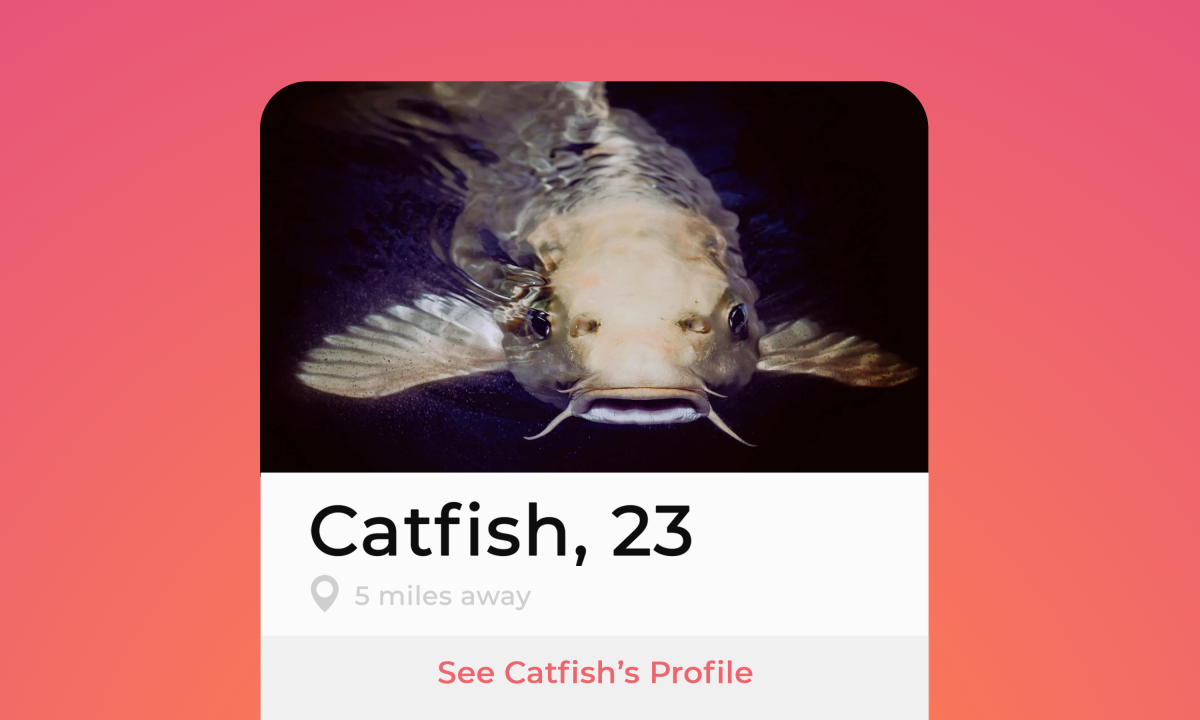DISCLAIMER: Tareasa Johnson’s story about Jerome McCoy is not proven fact, it’s simply a personal anecdote she put on TikTok. That being said, everything she says about McCoy may or may not be true. It’s important to note that McCoy has denied the claims made by Johnson. His side of the story can be found in this interview on YouTube. In this article from CNN, McCoy says that he filed a defamation lawsuit against Johnson. However, CNN found no record of this lawsuit.
Tareasa Johnson has recently become yet another person to achieve fast fame on TikTok under her handle Reesa Teesa. However, her fame didn’t come from doing a dance or a makeup-up tutorial – it came from her heartbreaking and terrifying catfish experience.
Johnson’s TikTok series of 52 videos titled “Who TF Did I Marry” centers her failed marriage and how her husband took catfishing to a whole different level. Johnson takes her listeners through every single detail, lie and betrayal in the eight-hour series.
The series tells the story of Johnson and a man whom she refers to as Legion. They met on a dating app right before COVID-19 and moved in together just weeks after the start of quarantine. The rest of their relationship happened just as quickly with the couple marrying in 2021 and divorcing after six short, but intense months.
Johnson said that Legion was a pathological liar and this ultimately led to the downfall of their relationship. She claimed that Legion lied about virtually everything throughout their relationship – his financial situation, his family, even his social security number.
This leads one to think about the term “catfishing.”
According to Merriam Webster, a catfish is “a person who sets up a false personal profile on a social networking site for fraudulent or deceptive purposes.”
Catfishing is so prevalent that a show exists based entirely on the term. “Catfish: The TV Show” is a “reality-based, documentary television series about the truths and lies of online dating.” The show follows Nev Schulman as he tries to help people across America get to the bottom of their virtual lover’s identity. It’s arguably the thing most responsible for popularizing the term “catfish.”
What’s depicted in the reality series, however, is nothing like the type of catfishing Johnson experienced.
In the first episode of her series, Johnson expressed the concern she had in regards to meeting Legion in person.
“Hopefully he looks like his pictures, because that’s always an issue with online dating,” Johnson said.
Eventually, Legion and Johnson met.
“I was so relieved that he actually looked like his pictures,” Johnson said.
Little did she know, she was still not safe from catfishing. Johnson believed that since Legion looked like his picture, his persona was genuine. She was wrong.
As their relationship progressed, Johnson uncovered all the lies that Legion was feeding to her and eventually saw him as a completely different person. This was especially clear when she looked through his phone and found explicit messages between Legion and other women.
“The person I am married to is not the person in these messages,” Johnson said.
While Legion may not have created a fake physical appearance to lure Johnson into a relationship, she said he used a fake persona, which ultimately had the same impact. There were also several things that Legion did to help support his story.
When they first met, Legion made it clear to Johnson that he was financially secure. He told her that he had been an arena football player and was now the vice president of a condiment company. Johnson was even more sure of his financial situation when he paid all of her bills during the time they were quarantined together in her home.
However, his claim to be financially stable proved to be false when the couple decided to buy a home together. Long story short, Legion’s multiple attempts to pay a downpayment on several different homes fell through.
Over half of the women that participate in online dating say that their experience has been negative. In fact, many women in today’s society have experiences with online dating that are really similar to Johnson’s.
Popular TikTok creator, Jenna Jean, shared her series “Who TF Did I Date,” that mirrors Johnson’s experience with extreme catfishing.
Years ago, when catfishing first became prevalent, most people were worried about whether or not the person looked like their picture online. In this age, it has turned into whether or not the person’s life looks like the one they portray online.
While a case of catfishing by physical appearance can be caught by doing a reverse image search on Google or meeting the person in a public place, the compulsive lying type of catfishing can’t be detected as easily. This is why people must take precautions when dating online. Asking to see someone’s driver’s license or proof of employment may be difficult but can go a long way in saving someone from situations like Johnson’s.
So, let this be a reminder to any and everyone on dating sites; make sure you keep yourself safe while trying to find your soulmate. Trust your gut. If something doesn’t feel right, ask questions. Above all, make sure your future conquest doesn’t have anything in common with Legion.
































